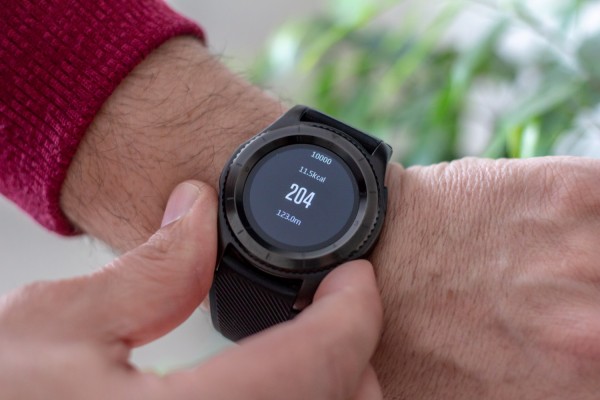10,000 Steps? Here’s What Experts Say About the Number of Steps You Should Walk Each Day
Are you considering walking as your main source of exercise? Then, you probably know that the number of steps you should take every day is at least 10,000.
What a lot of people don't know is that the 10,00 steps we believe we should complete each day is not a 'must' although it's a good goal to work on.
However, according to Harvard University medicine professor I-Min Lee, we can still get health benefits from walking even just half of our goal-5,000 steps, that is.
As Lee said, the 10,000 steps each day guideline actually started in 1965 in a marketing department when Japan-based "Yamasa Clock and Instrument Company sold a pedometer," which they called "Manpo-kei" which means "10,000 steps meter" in Japanese.
However, for a lot of older people, in particular, the expert added, 10,000 steps each day can be such an overwhelming goal.
ALSO READ: Wearables: Helping You Lead a Healthy Life Right on Your Wrist

Experts recommend the use of a pedometer as this wearable is important for one who wants to see the number of steps he is taking.
Half the Goal
Since 10,000 steps is a seemingly next-to-impossible goal for many, Lee conducted research that found that walking even just 4,400 steps a day can reduce the risk of premature death in women by 41 percent.
According to the University of Massachusetts' Center for Personalized Health Monitoring professor Catrine Tudor-Locke, the reason 10,000 steps a day guideline has been embraced is that "it is the number majority of the studies work with."
This number, she explained, "Keeps being reinforced" due to the manner research studies are designed. Therefore, the study might conclude that 10,000 steps help in more weight loss compared to 5,000.
The said conclusion is then picked up by the media, which then would report saying one should indeed go with 10,000 steps, although it could be because the research has just tested two numbers. Tudor-Locke added, probably, the said study did not test 8,000, for instance, and it didn't test 12,000, as well.
Eventually, in terms of achieving the minimum number of steps, individuals should be walking each day, Lee said, vary.
Some go for the 10,000 while the others say they need at least 6,000 steps. "But as long as long as you're active," continued Lee, "You are probably doing the right thing."
DON'T MISS THIS: Apple Watch Introduces Features That Will Allow Doctors to Remotely Monitor Patients as they Age
Pedometer, a 'Must'
If you're into a fitness regimen, several experts say that you must know how many steps you are presently averaging each day to achieve your goal.
They recommend too, you purchase a pedometer if you don't have one yet, and this need not be so expensive. You need the wearable just to see the number of steps you are taking.
If you don't have one yet, you can use your smartphone as most of these gadgets have built-in step counters. If your phone doesn't have one, you can download an app to count your steps.
On your pedometer or step counter, initially set a goal from 500 to 1,000 steps higher than your present average number of steps. Experts suggest that you work on maintaining the slight increase you set for at least a week or two until you have comfortably been used to that change.
Then, adjust it a bit again when you're comfortable with your latest average and repeat the process until you reach the ideal count of 10,000 steps a day.
IN CASE YOU MISSED THIS: Starting Your Lazy Keto Diet? Here are 3 Things You Need to Know
Check out more news and information on Exercise Routines and Fitness on MD News Daily.
Oct 31, 2020 08:00 AM EDT





